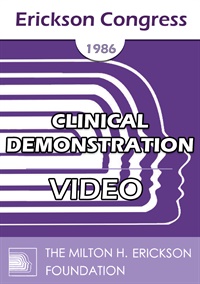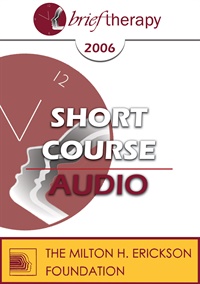
- Average Rating:
- Not yet rated
- Topic Areas:
- Short Courses | Affect | Attachment | Couples Therapy | Neuroscience
- Categories:
- Brief Therapy Conference | Brief Therapy Conference 2006
- Faculty:
- Marion Solomon, PhD
- Duration:
- 1:18:43
- Format:
- Audio Only
- Original Program Date:
- Dec 07, 2006
- Short Description:
- Participants in this workshop will explore ways to apply the understanding of attachment, trauma, brain and mind in diagnosing and treating relationship problems. A goal of the treatment is to accelerate the access to emotions in the more withdrawn partner, leading to more open communication between partners. Lecture, discussion and videotape demonstration will clarify how traumas of early disturbed bonding experiences can be seen and treated in a conjoint session.
- Price:
- $15.00 - Base Price
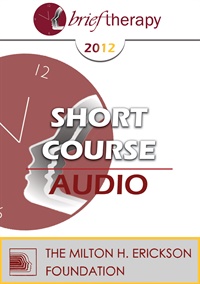
- Average Rating:
- Not yet rated
- Topic Areas:
- Short Courses | Affect
- Categories:
- Brief Therapy Conference | Brief Therapy Conference 2012
- Faculty:
- Richard Hill, MBMSc, MEd, MA
- Duration:
- 1:28:20
- Format:
- Audio Only
- Original Program Date:
- Dec 05, 2012
- Short Description:
- BT12 Short Course 24 – The Interplay-Mind, Brain, Body, Gene: How This Becomes Behavior, Affect and Mental State – Richard Hill, MA, MEd The Interplay is a word for the relationship between the broad complex of processes that collectively create our clients. Our inner world expresses itself in more than just behavior and affect. This presentation will show how this occurs and how body states and even gene expression are explicitly expressed through “9 voices” from our implicit self. A brief therapeutic process will be described that dovetails into whatever therapy you practice to positively affect the Interplay.
- Price:
- $15.00 - Base Price
Tags: Mind-Body
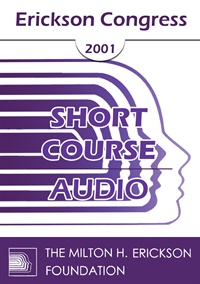
- Average Rating:
- Not yet rated
- Topic Areas:
- Short Courses | Affect | Therapeutic Relationship
- Categories:
- Erickson Congress 2001 | Erickson Congress
- Faculty:
- Sietze VanDerHeide, PsyD
- Duration:
- 1:30:51
- Format:
- Audio Only
- Original Program Date:
- Dec 06, 2001
- Short Description:
- IC01 Short Course 20 - The Ericksonian Hypnotherapeutic Relationship and Affect Regulation - Sietze Van Der Heide, PsyD The exchange of emotions in the clinical relationship is an essential aspect of the therapeutic process. Since affect is exchanged between the client and therapist at the conscious and unconscious level, Ericksonian techniques are well suited to facilitating the affective change process. This workshop will integrate contemporary models of affect regulation with Ericksonian hypnotherapy. The emphasis will be on applied techniques aimed at increasing the client's tolerance and capacity for utilization of affect.
- Price:
- $15.00 - Base Price
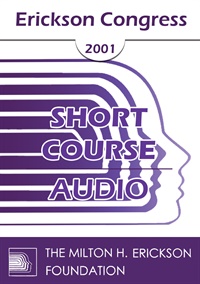
- Average Rating:
- Not yet rated
- Topic Areas:
- Short Courses | Affect | Ideomotor | Brief Therapy
- Categories:
- Erickson Congress 2001 | Erickson Congress
- Faculty:
- Bart Walsh, MSW
- Duration:
- 1:14:27
- Format:
- Audio Only
- Original Program Date:
- Dec 06, 2001
- Short Description:
- This workshop presents a structured protocol for resolving repressed, suppressed or otherwise dated affect using ideomotor questioning. Essential to this model is a progressive ratification series that addresses affect, cognition and behavior. A questioning tree illustrates a Socratic means of affect inquiry. This non-invasive, brief procedure is a useful adjunct to other treatment modalities and instrumental in clarifying the focus of treatment.
- Price:
- $15.00 - Base Price
Tags: Ideomotor Brief Therapy
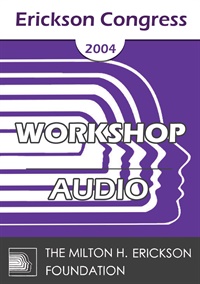
- Average Rating:
- Not yet rated
- Topic Areas:
- Workshops | Hypnosis | Neurobiology | Pain and Healing | Affect
- Categories:
- Erickson Congress | Erickson Congress 2004
- Faculty:
- Jeffrey Feldman, PhD
- Duration:
- 2:03:01
- Format:
- Audio Only
- Original Program Date:
- Dec 02, 2004
- Short Description:
- This workshop will review the neurobiology of pain processing, affect and hypnosis. Neuro- imaging studies will be reviewed elucidating individual differences in pain sensitivity and identifying distinct areas of the brain differentially activated depending upon the nature of hypnotic suggestions. A hypnotic approach that develops a dissociation between sensory and affective components of pain through the accessing of prior positive emotional experience will be demonstrated.
- Price:
- $15.00 - Base Price

- Average Rating:
- Not yet rated
- Topic Areas:
- Short Courses | Ericksonian Hypnosis and Therapy Techniques | Hypnosis | Pain and Healing | Affect
- Categories:
- Erickson Congress | Erickson Congress 2007
- Faculty:
- Jeffrey Feldman, PhD
- Duration:
- 1:18:51
- Format:
- Audio Only
- Original Program Date:
- Dec 07, 2007
- Short Description:
- Addressing the affective dimension of pain in addition to the sensory focus typical of hypnotic pain management techniques greatly expands one's therapeutic impact in a manner congruent with the way Erickson practiced. This workshop will involve a didactic presentation, clinical demonstration and individual exercises designed to impact the affective dimension of pain.
- Price:
- $15.00 - Base Price

- Average Rating:
- Not yet rated
- Topic Areas:
- Short Courses | Hypnotherapy | Mindfulness | Utilization | Affect
- Categories:
- Erickson Congress | Erickson Congress 2007
- Faculty:
- Carolyn Daitch, PhD
- Duration:
- 1:19:13
- Format:
- Audio Only
- Original Program Date:
- Dec 07, 2007
- Short Description:
- Incorporation of a few simple, easy-to-learn, easy-to-practice hypnotic interventions can be an effective adjunct to other treatment modalities. This workshop will offer participants a side-ranging selection of different hypnotherapeutic tools that can be used to promote affect regulation. Attendees will be introduced to the Affect Regulation Toolbox, a collection of tools with six therapeutic objectives to treat the over-reactive client: mindfulness, sensory awareness and cues, impulse control, co-existing affective states, resource utilization and positive affect development.
- Price:
- $15.00 - Base Price

- Average Rating:
- Not yet rated
- Topic Areas:
- Short Courses | Pain and Healing | Self-Hypnosis | Affect | Anxiety
- Categories:
- Erickson Congress | Erickson Congress 2011
- Faculty:
- Jeanne Hernandez
- Duration:
- 1:32:01
- Format:
- Audio Only
- Original Program Date:
- Dec 09, 2011
- Short Description:
- Guide your patients in self-relational, self-hypnotic intra-body conversations to self-manage their chronic pain and suffering. Patients will learn to compassionately listen to pain signals as distinct from self and body, and to proactively respond in self-supportive and soothing ways. The process is also effective for affect and anxiety management.
- Price:
- $15.00 - Base Price
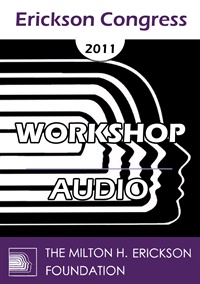
- Average Rating:
- Not yet rated
- Topic Areas:
- Couples Therapy | Hypnosis | Workshops | Affect | Conflict | Intimacy | Relationships
- Categories:
- Erickson Congress | Erickson Congress 2011
- Faculty:
- Carolyn Daitch, PhD
- Duration:
- 1 hour
- Format:
- Audio Only
- Original Program Date:
- Dec 07, 2011
- Short Description:
- This course will present concrete tools and methods of hypnosis to help couples end their habitual conflict escalation. Participants will learn the impact of affect dysregulation on relationships, client-friendly tools to enhance intimacy and connection, and how to rehearse and transfer skills from therapy to real life
- Price:
- $20.00 - Base Price
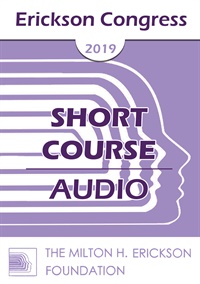
- Average Rating:
- Not yet rated
- Topic Areas:
- Short Courses | Affect | Psychotherapy | Therapist Development
- Categories:
- Erickson Congress | Erickson Congress 2019
- Faculty:
- Bardia Monshi, PhD
- Duration:
- 1 Hour 26 Minutes
- Format:
- Audio Only
- Original Program Date:
- Dec 12, 2019
- Short Description:
- Effective therapy, or coaching, is touching and moving clients. As professionals, we are providing an emotional service because all of our clients’ problems have to do with emotional self-regulation. Therefore, to make therapy effective the impact must be affective!
- Price:
- $15.00 - Base Price
- Average Rating:
- Not yet rated
- Topic Areas:
- Clinical Demonstrations | Affect | Hypnosis | Trauma Studies
- Categories:
- Erickson Congress | Erickson Congress 1986
- Faculty:
- Joseph Barber, PhD
- Course Levels:
- Master Degree or Higher in Health-Related Field
- Duration:
- 1:07:20
- Format:
- Audio and Video
- Original Program Date:
- Dec 05, 1986
- Short Description:
- This clinical demonstration follows an extended hypnotic conversation with a participant who has a long history of fainting and anxiety in response to blood. The session explores how fear responses can be reshaped through imagery, attention, and meaning-making, rather than direct symptom suppression. Participants observe how trance work opens space for unresolved trauma, self-belief, and compassion, while gently restoring a sense of control and emotional flexibility. The demonstration offers a rich example of how hypnosis can work at the intersection of affect, memory, and identity.
- Price:
- $29.00 - Base Price


